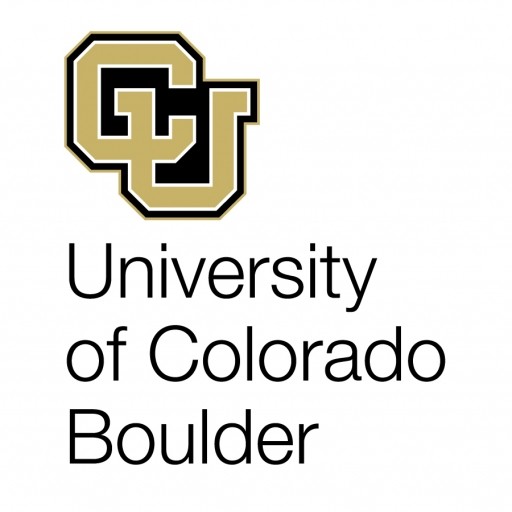Photos of university / #cuboulder
The Journalism Studies PhD program, one of three tracks offered under the umbrella PhD in Media Research and Practice, is dedicated to exploring journalism’s unique status in an increasingly complex media landscape, while highlighting the role of social science and humanities scholarship in guiding the democratic aspirations of media in an era of technological disruption and challenges to professional legitimacy.
The program is highly interdisciplinary, and students take at least one-third of their courses outside the Department of Journalism. We thus offer students opportunities to apply theories and methods from areas such as communication, political science, philosophy, sociology, anthropology, economics, business, public policy, history and law. Sub-areas within Journalism Studies include the sociology of media, the dynamic interplay of journalism with emerging media, the history of journalism, media processes and effects, media and politics, media law and policy, science communication, professional ethics and transnational media systems.
The program strives to produce graduates who demonstrate intellectual leadership, nationally and internationally, in the areas of research specialization they choose and/or pioneer, and an aptitude for generating public conversation about their scholarship. We hope to produce scholars who shed light on journalism’s contemporary challenges and who can provide reliable research results to those eager to safeguard journalism’s viability as an institution.
An important part of doctoral students’ education is their participation in the department’s research and teaching missions through their assignments as research assistants, teaching assistants and instructors.
Doctoral students take 44 credit hours of coursework and 30 dissertation credit hours for a total of 74 hours. The coursework includes a foundational core consisting in the two-semester (6 hours) Proseminar in Communication and Media Theory, one semester each of qualitative and quantitative research methods (6 hours); and two semesters of research colloquium (2 hours)—all of which are taken in the first year; 15 hours (5 courses) representing an area of concentration inside the departments of Journalism, Advertising, Public Relations & Design, and/or Media Studies; 9 hours (3 courses) representing an outside emphasis, which can be taken from any department or college outside of JRNL, APRD, and MDST; and 6 hours (2 courses) of advanced methods in media research and practice, which may be taken inside or outside of the three home departments. Comprehensive examinations, a dissertation and a dissertation defense also are required. Students are expected to complete the program and defend the dissertation in 4 years.
Requirements
Applicants to the PhD program in Journalism are expected to hold the master’s degree or equivalent graduate work. In exceptional cases, applicants without a master’s degree may be considered for admission.
We encourage your application if your record and interests promise success in the program and you aspire to actively engage in scholarly investigation of journalism. Completed domestic applications must be received by the program no later than Jan. 1 prior to the fall semester for which entrance is sought. International applications should be submitted by Dec. 1. Late applications may be considered under special circumstances.
Successful applications typically meet or exceed the following criteria:
- Have a Graduate Record Examination (GRE) score of at least 301 (1100 pre 2011) on verbal and quantitative combined. International applicants must also have a TOEFL score of 625 (IBT 106)
- Have an undergraduate cumulative grade-point average of at least 3.2 and a cumulative GPA of at least 3.5 in previous graduate work
- Provide three letters of recommendation
- Provide a Statement of Purpose of approximately 700 words
- Provide a resume or CV that includes academic and employment experience
- Provide a writing sample that exhibits the ability to undertake the conceptual and empirical studies required of doctoral students (e.g., a chapter from a master’s thesis or graduate-level term paper)
Meeting these criteria does not guarantee acceptance into the program. Because we accept relatively few new doctoral students each fall, we may have more qualified applicants than available openings.
Scholarships
Research or teaching assistantships, including a tuition waiver and stipend, as well as fellowships, are available. PhD students may receive assistantships for a maximum of four years.
The University of Colorado Boulder offers a comprehensive program in Journalism Studies that prepares students for dynamic careers in the media industry. This program combines rigorous coursework with practical experiences, emphasizing the development of essential skills such as reporting, editing, multimedia production, and critical analysis of media practices. Students have the opportunity to explore various facets of journalism including digital media, broadcast journalism, magazine writing, and investigative reporting. The department encourages a strong foundation in ethical principles and understanding of media law, ensuring graduates are well-equipped to navigate the complexities of modern journalism and contribute responsibly to society. The program also provides access to state-of-the-art facilities, including newsrooms, editing suites, and multimedia labs, to facilitate hands-on learning. Faculty members are experienced professionals and scholars dedicated to mentoring students and fostering innovation in media production. Internships and cooperative education opportunities with local news organizations, national media outlets, and industry partners are integral parts of the program, allowing students to gain real-world experience and build professional networks. The Journalism Studies program at CU Boulder aims to produce graduates who are not only skilled storytellers but also critical thinkers and ethical journalists capable of adapting to the rapidly changing landscape of media and communication worldwide.



